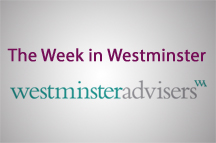 It’s commonplace to hear that certain weeks or moments in politics are hugely significant or vitally important, to the extent that this has lost some meaning. However, it is fair to say the events of the past week can be counted in the ‘significant’ bracket. Jeremy Corbyn’s leadership victory creates a new political reality at Westminster, the consequences of which will unfold in the coming weeks and months.
It’s commonplace to hear that certain weeks or moments in politics are hugely significant or vitally important, to the extent that this has lost some meaning. However, it is fair to say the events of the past week can be counted in the ‘significant’ bracket. Jeremy Corbyn’s leadership victory creates a new political reality at Westminster, the consequences of which will unfold in the coming weeks and months.
What then are the main things we’ve learnt from events this week?
1. The Labour party is being transformed. Corbyn’s victory, the appointment of John McDonnell as shadow chancellor and the influx of new members into the party creates a new base of support within Labour which will drag the party to the left.
2. Whilst there is already speculation regarding how long Corbyn will last as leader, the comprehensive nature of his victory - coupled with a current lack of co-ordinated internal opposition - suggests there is little prospect of an immediate coup.
3. Following McDonnell’s appointment as shadow chancellor, it was argued that this would effectively boost the government’s majority as the DUP would be unable to support Labour given his position over the IRA. However, given that all DUP MPs voted against the government over changes to tax credits, it would seem this dynamic is not as clear-cut as initially thought.
4. Corbyn’s first crack at Prime Minister’s Questions demonstrated that the weekly half-hour slot does not have to be conducted in a ‘Punch & Judy’ manner. The jury is most definitely out on the new crowdsourced approach taken by the opposition leader, but the consensus appeared to be that a smattering of theatre would be welcome. Claims that Corbyn did well at PMQs are far-fetched. Cameron will be perfectly happy to continue in this vein for the next five years. He doesn’t need to ‘win’ PMQs - but Corbyn does if we wants any hope of energising his party and landing blows on the Conservative party.

5. In addition to being good for the hard left, Corbyn’s victory will have put a spring in the steps of Osborne, May, Johnson and any others considering a leadership bid when Cameron stands down. Dragging Labour to the left creates the opportunity for the Conservatives to claim the centre-ground of British politics, with future Tory leadership hopefuls having more than one eye on the potential electoral success this could bring.
6. Moving away from leadership issues, this week’s vote on the Chancellor’s tax credit reforms highlights that Conservative discipline remains fairly strong. Despite concerns being expressed in advance of the vote at the impact on the changes on households, only David Davis and Stephen McPartland voted against the government with Osborne perceived to have undertaken an effective exercise to assuage concerned backbenchers.












